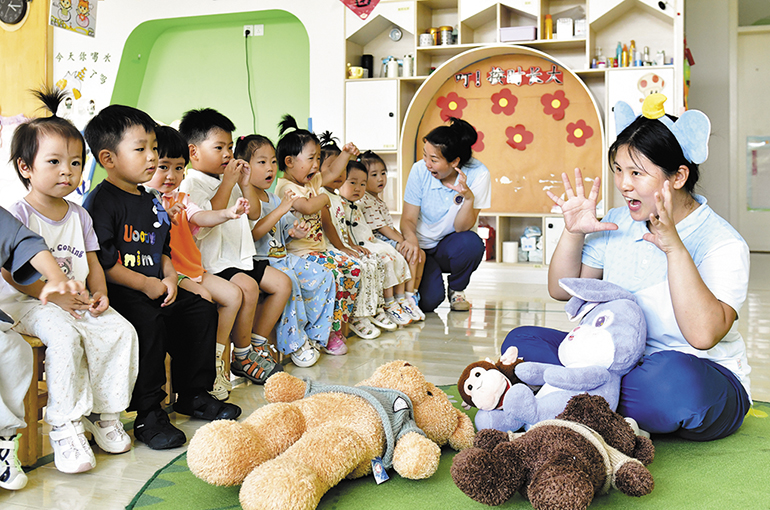 China to Make Preschool Free in Latest Step to Encourage Childbirth
China to Make Preschool Free in Latest Step to Encourage Childbirth(Yicai) Aug. 6 -- China will gradually waive kindergarten care and education fees for children in the year before starting primary school, likely benefiting more than 10 million six-year-olds, as the country continues introducing new measures to boost child births.
China will make care and education for kids in the third year at public kindergartens free starting this fall, according to a policy document the State Council, the country's cabinet, released yesterday. The relevant pay at private kindergartens, which are usually more expensive, will also be reduced in line with local public standards, but families will still bear the extra costs.
Kindergarten expenses in China mainly include care and education, food, and activity fees. The new policy's exemption is limited to care and education fees, mainly due to financial affordability.
The number of kindergartens in China exceeded 250,000 as of the end of last year, while that of children topped 35.8 million, according to data from the Ministry of Education. Chinese kindergartens generally serve kids aged three to six years old, so it is estimated that over 10 million children will enjoy free care and education from the new semester.
The central and local governments will bear the exempt fees, with the proportion to be based on local financial capacity, the documented showed. Financially strong provinces and cities such as Beijing and Shanghai will cover 50 percent of the expenses, while less capable ones will handle between 40 percent and 20 percent.
China abolished its family planning scheme in 2021 due to the declining birth rate and aging population, removing all restrictions on the number of children families can have. The country has introduced many measures to reduce the cost of childcare and encourage births.
On July 28, China launched a nationwide childcare subsidy policy, granting CNY10,800 (USD1,500) per child for their first three years, in an attempt to boost the birth rate, which has declined from 2016 to 2023 amid higher living costs, later marriages, and a preference among younger people for smaller families.
The birth rate did rebound last year, reaching 6.77 per 1,000 people, thanks to more government support and couples waiting to have children in the auspicious Year of the Dragon.
Editors: Dou Shicong, Martin Kadiev